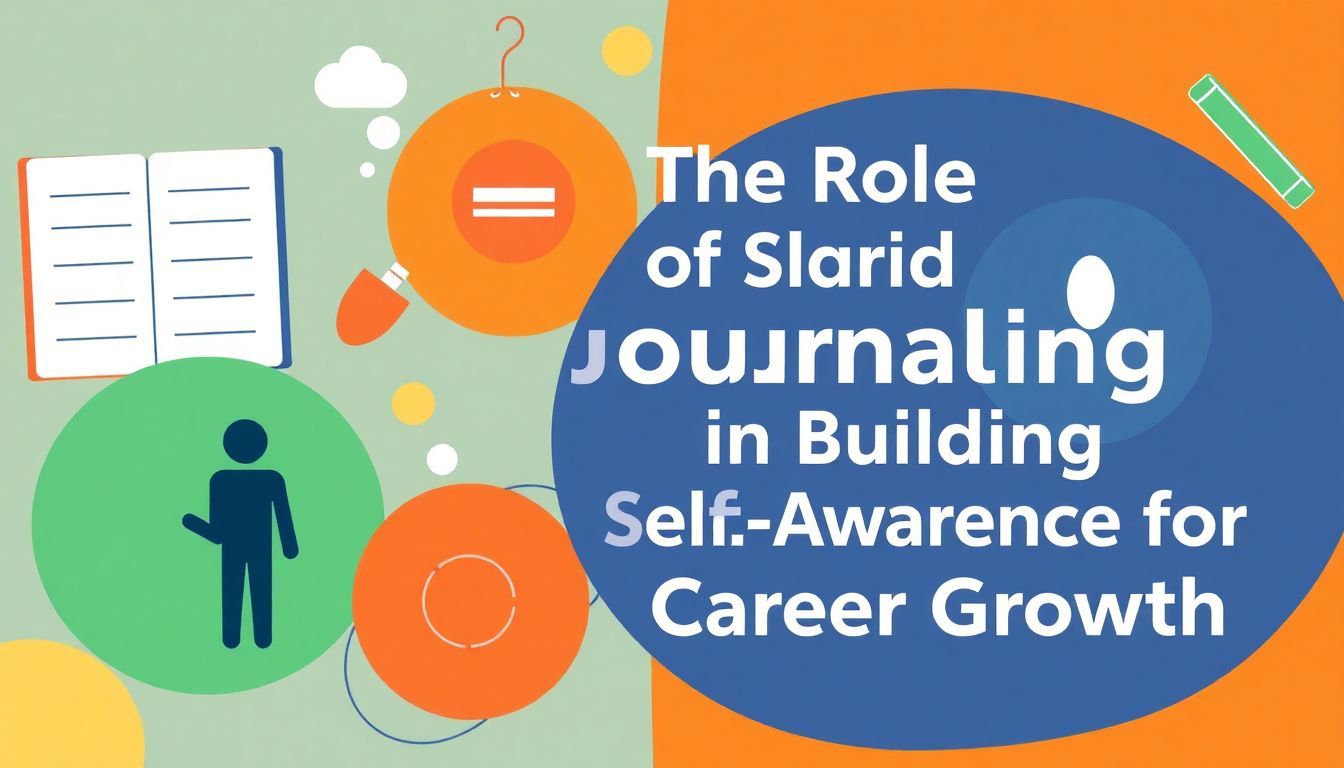In a world that moves fast and demands constant productivity, taking time to slow down and reflect can feel like a luxury. But journaling isn’t just a personal hobby—it’s one of the most powerful and accessible tools for building self-awareness and clarity in your professional life.
Whether you’re navigating a career transition, struggling with motivation, or simply want to grow with more purpose, journaling can help you tune in to what’s really going on inside—and make decisions that feel aligned.
Let’s explore how journaling supports career development, and how to start your own practice in a simple, meaningful way.
Why Journaling Works
Journaling helps you:
- Organize your thoughts and emotions
- Make sense of experiences and challenges
- Notice patterns in behavior, motivation, and mindset
- Track your growth and progress over time
- Access insights that are hard to reach in the middle of a busy day
It’s like holding up a mirror—not to judge yourself, but to understand yourself.
Unlike overthinking (which goes in circles), journaling creates structure. You’re not just thinking—you’re processing.
How Journaling Supports Self-Awareness at Work
In the context of career growth, journaling helps you:
- Identify what you enjoy (and what you don’t)
- Reflect on feedback or difficult conversations
- Track what energizes or drains you during the day
- Explore doubts, fears, and dreams without outside noise
- Clarify your next step when things feel uncertain
With regular practice, you start to see connections between how you feel and what you do—so you can make more conscious, empowered choices.
How to Start a Journaling Practice (Even If You’re Busy)
You don’t need to write a novel. You don’t need a fancy notebook. And you don’t need to journal every day to see benefits.
Start with just 5–10 minutes, two or three times a week. Choose a time when your mind is relatively quiet—early morning, lunch break, or before bed.
Use prompts if you’re not sure what to write about (see below). Keep it private, honest, and judgment-free. This is for you.
Simple Career-Focused Journal Prompts
Here are some powerful prompts to deepen self-awareness and connect with your professional purpose:
- What did I enjoy most about my work this week?
- What challenged me, and how did I respond?
- When did I feel confident or proud?
- What triggered frustration or insecurity?
- What would I do differently if I trusted myself more?
- What does success look and feel like for me now?
- What’s one small action I can take toward a career that aligns with my values?
Let your responses be honest, even if they’re uncomfortable. Growth starts with truth.
Using Journaling to Make Career Decisions
If you’re facing a big decision—like changing jobs, accepting a promotion, or starting something new—journaling can help you process your thoughts away from external pressure.
Try questions like:
- What am I excited about—and what am I afraid of?
- Is this opportunity aligned with my long-term vision?
- Am I choosing this for me—or to meet someone else’s expectation?
Writing it down gives you space to hear your own voice.
Reflecting on Patterns Over Time
As you build your journaling habit, you’ll start to notice patterns:
- Certain types of tasks always energize you
- Specific environments make you feel small or disconnected
- Emotional triggers show up in similar situations
These patterns are gold. They help you understand what to move toward—and what to move away from.
Consider reviewing your journal every few months to spot trends and track your evolution.
Digital or Paper? Whatever Works for You
Some people love the feeling of pen on paper. Others prefer typing. There’s no “correct” way to journal—just choose the method you’re more likely to stick with.
Apps like Day One, Notion, Journey, or even a simple Google Doc can work perfectly if you’re more digital. What matters is the intention behind the habit.
Journaling Is a Career Tool (Not Just a Personal One)
Journaling doesn’t just help you feel better—it helps you make better decisions, communicate more clearly, and lead with purpose.
When you understand yourself, you:
- Ask for what you need
- Set boundaries that protect your energy
- Pursue goals that actually fulfill you
- Grow from setbacks instead of repeating them
That’s what makes journaling such a powerful career ally.
Your Voice, On the Page
You don’t need a perfect plan. You don’t need to figure everything out overnight. You just need a place to be honest—with yourself.
And that’s what journaling gives you.
A place to reflect.
A place to process.
A place to reconnect with what matters most.
So pick up your pen—or open a blank page—and begin. Your future self will thank you.
